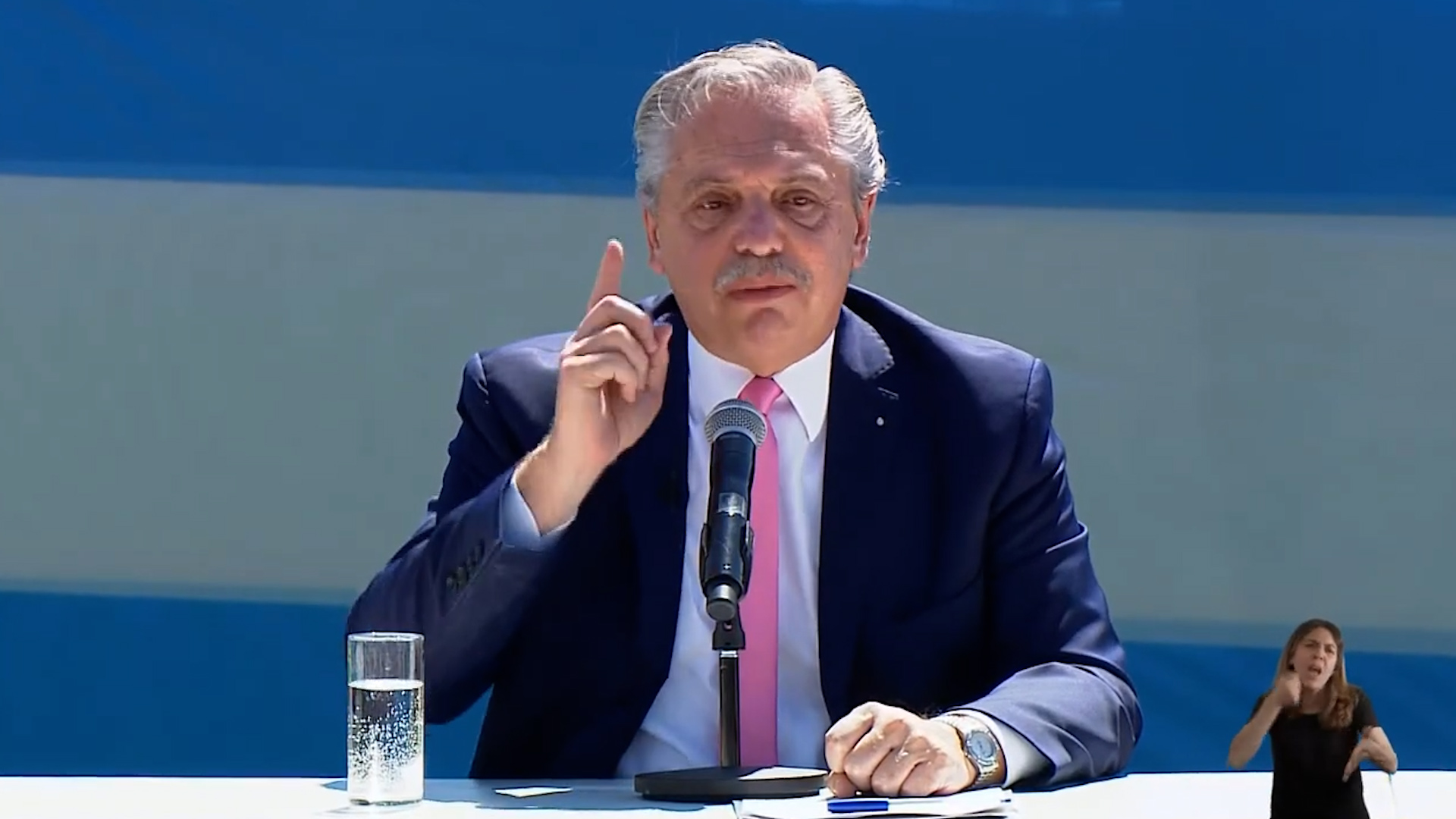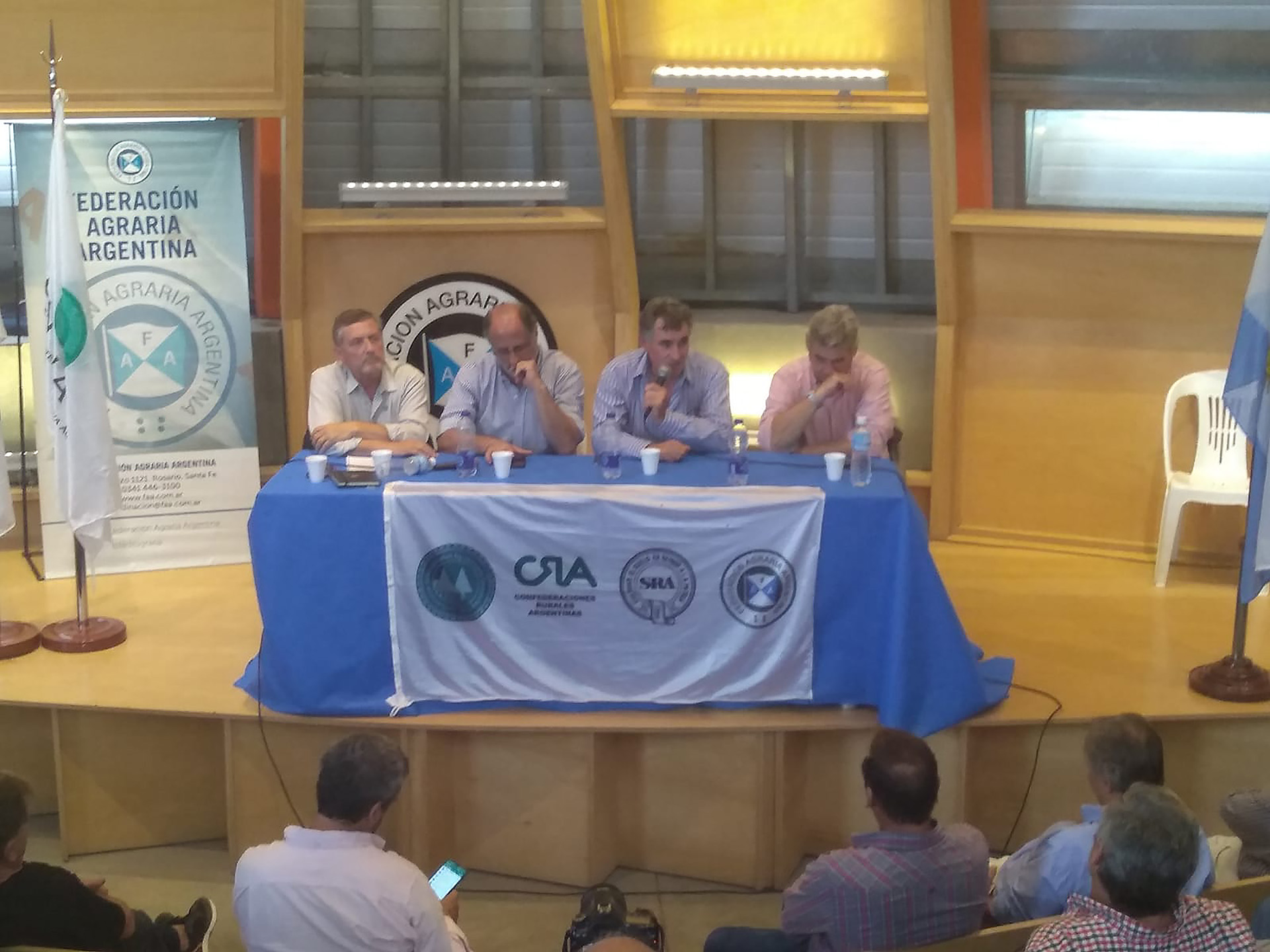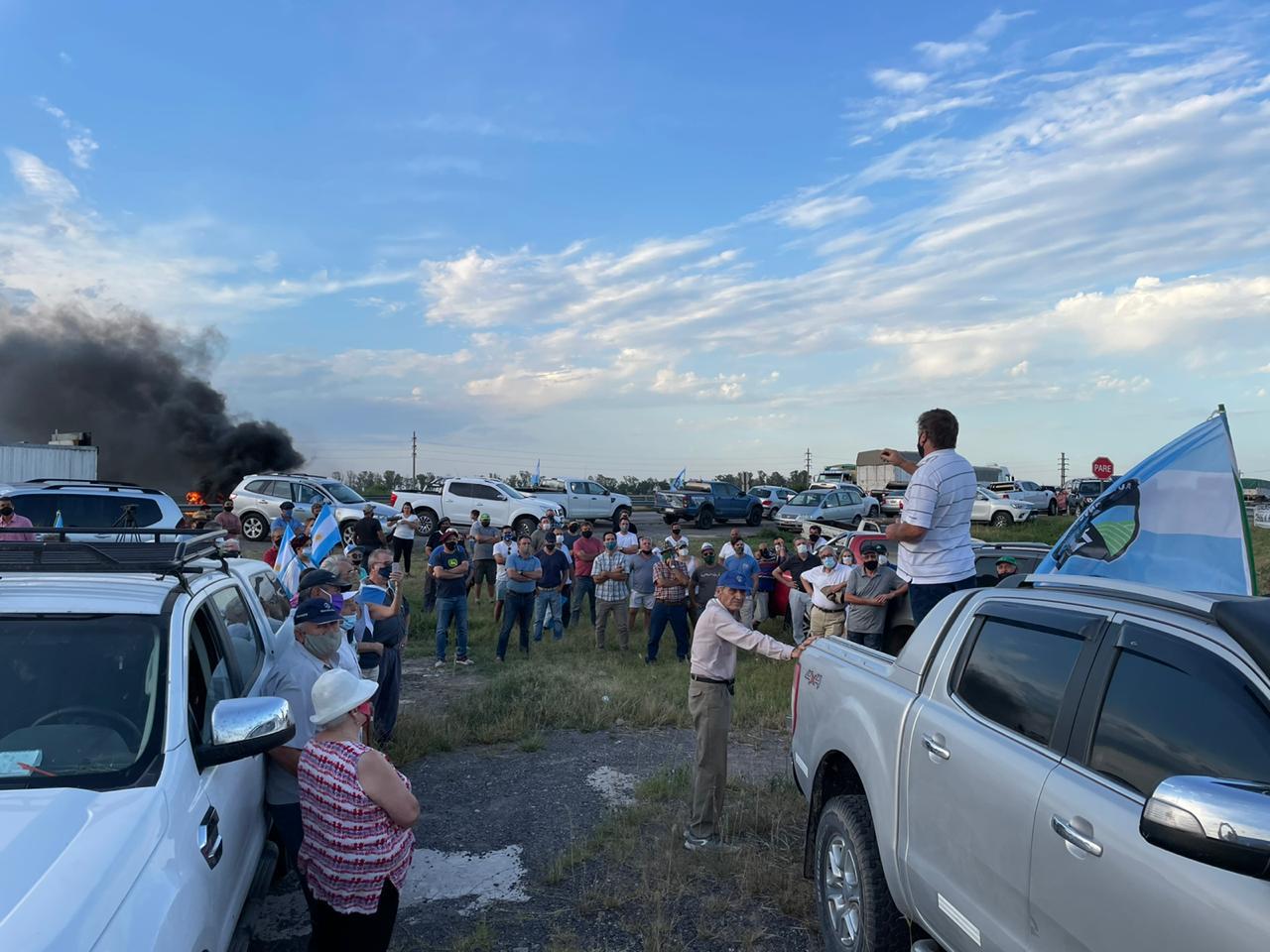
There are several aspects to consider regarding the closure of exports of soybean oil and flour, announced last Sunday by the Undersecretary of Markets Agricultural, which reports to the Ministry of Agriculture, and which has led to a unanimous rejection of this measure by the entire agro-industrial chain. They ensure that there is a permanent change in the rules of the game on the part of the Government.
The first thing to bear in mind is that the announcements to be made by the Government in the next few hours are awaited. The aim is to avoid a conflict with the countryside and to control that there is no impact on the domestic market of the increase in the international price of wheat, as a result of Russia's advance over Ukraine. It transpired that if it was finally decided to increase the retention of soybean oil and flour, the extra money raised would be allocated to subsidize the domestic price of bakery flour.
The inflationary issue remains the main concern of the national administration. However, from the field, they pointed out that the aforementioned problem is not solved by market intervention or increased tax pressure, but by reducing public spending and ordering macroeconomics.

In this regard, the 2nd Vice President of Argentine Rural Confederations (CRA), Juan Goya, said that “the contributory capacity of those who pay taxes is exhausted,” adding: “The inflationary phenomenon has been going on for a very long time and is always due to the intention of spending more than income allows. A sample of the unshakable decision of the Government not to reduce spending, not to give signs of it and to mock those who pay taxes.”
Meanwhile, indoor producers continue to organize assemblies to define future union actions. The malaise, fundamentally, is due to the policy being pursued by Alberto Fernández's administration, which according to the producers, is going in the opposite direction to generate predictability and trust. Added to this is the concern of the countryside about the negative effect of climate. In the current agricultural campaign, summer crops were severely damaged by drought, which will lead to lower production.
Below is a review of the aspects that revolve around a new confrontation between the national administration and the countryside.
There is a view of the field on the role of the governors of the main productive provinces. In the next few hours, the leadership of the Confederation of Rural Associations of Buenos Aires and La Pampa (CARBAP) will issue a statement asking the Buenos Aires governor, Axel Kicillof, to intercede with the national government to find a way out of the current problem.
In addition, yesterday the producers who met in the Assembly in the vicinity of Rosario, were in favor of the Santa Fe Liaison Table requesting a hearing with the provincial governor, Omar Perotti, with the aim of declaring whether or not he is in favor of the camp's demand. In the event that there is no answer in this regard, a march to the headquarters of the Santa Fe government is not ruled out.

It should be remembered that last Sunday, as soon as the news of the closure of oil and soybean meal exports came out, from his personal Twitter account, Omar Perotti warned that the measure “will stop the income of foreign exchange that the country needs”, adding: “Care must be taken to encourage deindustrialization. What we need is to add value, generate jobs and achieve investment.”
On the other hand, the highest authority in Córdoba, Juan Schiaretti, critic of Alberto Fernández's agricultural policy, also chose the social network Twitter to express his discomfort at the announced measure. “With regard to the closure of soybean meal and oil exports, I reject this measure because it harms Cordoba production and goes against the income of foreign exchange that is necessary for our country,” he said.
The presidents of the four camp entities have been in permanent contact since last Sunday. Yesterday they held a meeting and defined some immediate actions. The first of these, to express in a statement the rejection of the closure of exports of soybean oil and flour, and to ask Congress “Institutional Order” for legislation on the subject of withholding.

The leaders have maintained that on December 31, the power of the Executive Branch to modify the withholdings expired. Taking into account that it was not extended, as contemplated in this year's budget, which was rejected in Deputies, the withholdings are 0%. This is how the Argentine Rural Society took this claim to Justice together with the Rural Society of Jesus María. Both entities filed an amparo action in the federal courts of Córdoba, which fell to Federal Court No. 1, led by Judge Ricardo Bustos Fierro.
Meanwhile, producer representatives are discussing the possibility of organizing a meeting in the next few hours with national legislators, to learn their position on the issue of withholding. On the other hand, at yesterday's meeting, the Liaison Board decided to maintain “caution” when defining trade union actions, and to “contain” the producer bases that are very upset by the Government's actions in agriculture.
Since news of the closure of oil and soybean meal exports broke, producers began to organize mobilizations in the interior. The unrest is not only because of the aforementioned measure, but it is the last straw in a series of policies that are being carried out, with more intervention in export markets and increased tax pressure, among others.
Yesterday, an assembly was held in the vicinity of Rosario, from where the possibility of a protest towards the Federal Capital, especially the Government House, began to gain strength. And if there are no answers to the claims of the sector, they did not rule out blocking access to the port terminals of the Gran Rosario.

There will also be an assembly of producers this Thursday from 6pm, at the junction of routes 45 and 36, in the Cordoba district of Altos Fierro. And the next day, at 10:30am, a group of rural people from the north of the province of Buenos Aires, gather at kilometer 147 of National Route No. 9, at the height of Baradero.
As this media reported in recent hours, the national government seeks to avoid a conflict with the countryside and to reduce the impact that is being generated by the increase in the international price of wheat on the domestic market, as a result of Russia's advance on Ukraine.
As it transpired, the extra money that would resume due to the increase in retentions on soybean flour and oil, calculated by the Buenos Aires Cereal Exchange would be USD 425 million, would be used to subsidize the price of bakery flour.
Yesterday there were meetings of several ministers, including Julián Domínguez of Agriculture, with President Alberto Fernández. In addition, the holder of the agricultural portfolio met with export representatives.
The expectation for possible announcements is growing, as the countryside prepares to express its discomfort and rejection of official policy towards the sector, and to reiterate its call for changes in it.
KEEP READING:
Últimas Noticias
Debanhi Escobar: they secured the motel where she was found lifeless in a cistern

The oldest person in the world died at the age of 119

Macabre find in CDMX: they left a body bagged and tied in a taxi
The eagles of America will face Manchester City in a duel of legends. Here are the details

Why is it good to bring dogs out to know the world when they are puppies




